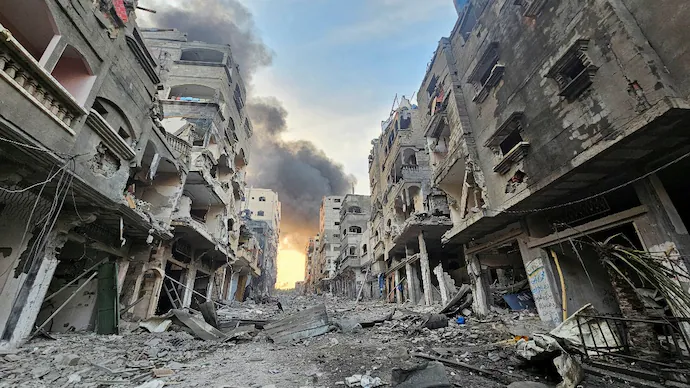Israel says ‘significant gaps’ in hostage deal, okays UN visit to northern Gaza | Top points
Israel has said "significant gaps" remained in the talks over a pause in military operations against Hamas in exchange for the release of remaining hostages. Meanwhile, It approved a visit of a UN delegation to northern Gaza.

Israel on Sunday (local time) said there were “significant gaps” after talks were held with the US, Qatar, and Egypt regarding Israel’s pause in military operations against Hamas in Gaza and securing the release of the remaining hostages.
The Israel-Hamas conflict has witnessed a recent escalation, highlighting the persistent tensions between the two entities. The situation remains complex, marked by historical grievances, geopolitical factors, and ongoing territorial disputes.
Key Points:
- Escalation: Recent events have seen an escalation in hostilities between Israel and Hamas, with both sides engaging in military actions and retaliatory measures.
- Historical Context: The conflict is deeply rooted in historical disputes over land, sovereignty, and political autonomy, dating back to the establishment of the state of Israel.
- Territorial Disputes: Ongoing territorial disputes, particularly in the Gaza Strip and the West Bank, continue to fuel tensions and contribute to the cyclical nature of the conflict.
- International Concerns: The international community closely monitors the situation, expressing concerns about the impact on civilian populations and urging both parties to exercise restraint and pursue diplomatic solutions.
Implications and Challenges:
- Humanitarian Impact: The conflict has significant humanitarian consequences, with civilian populations, especially in Gaza, bearing the brunt of the hostilities. The international community faces challenges in addressing the humanitarian needs of affected communities.
- Diplomatic Efforts: Diplomatic efforts to resolve the Israel-Hamas conflict face challenges due to deeply entrenched positions and the absence of a comprehensive agreement addressing the core issues.
Global Reaction:
- International Calls for De-escalation: Various countries and international organizations have called for an immediate de-escalation of hostilities, emphasizing the importance of dialogue and a peaceful resolution to the conflict.
- Role of Mediators: Efforts by international mediators and organizations aim to facilitate dialogue between Israel and Hamas, seeking avenues for a lasting ceasefire and addressing the root causes of the conflict.
Conclusion: The Israel-Hamas conflict remains a complex and longstanding issue with multifaceted dimensions. Efforts to find a sustainable solution require addressing historical grievances, ensuring the well-being of affected populations, and fostering diplomatic dialogue to achieve lasting peace in the region.




